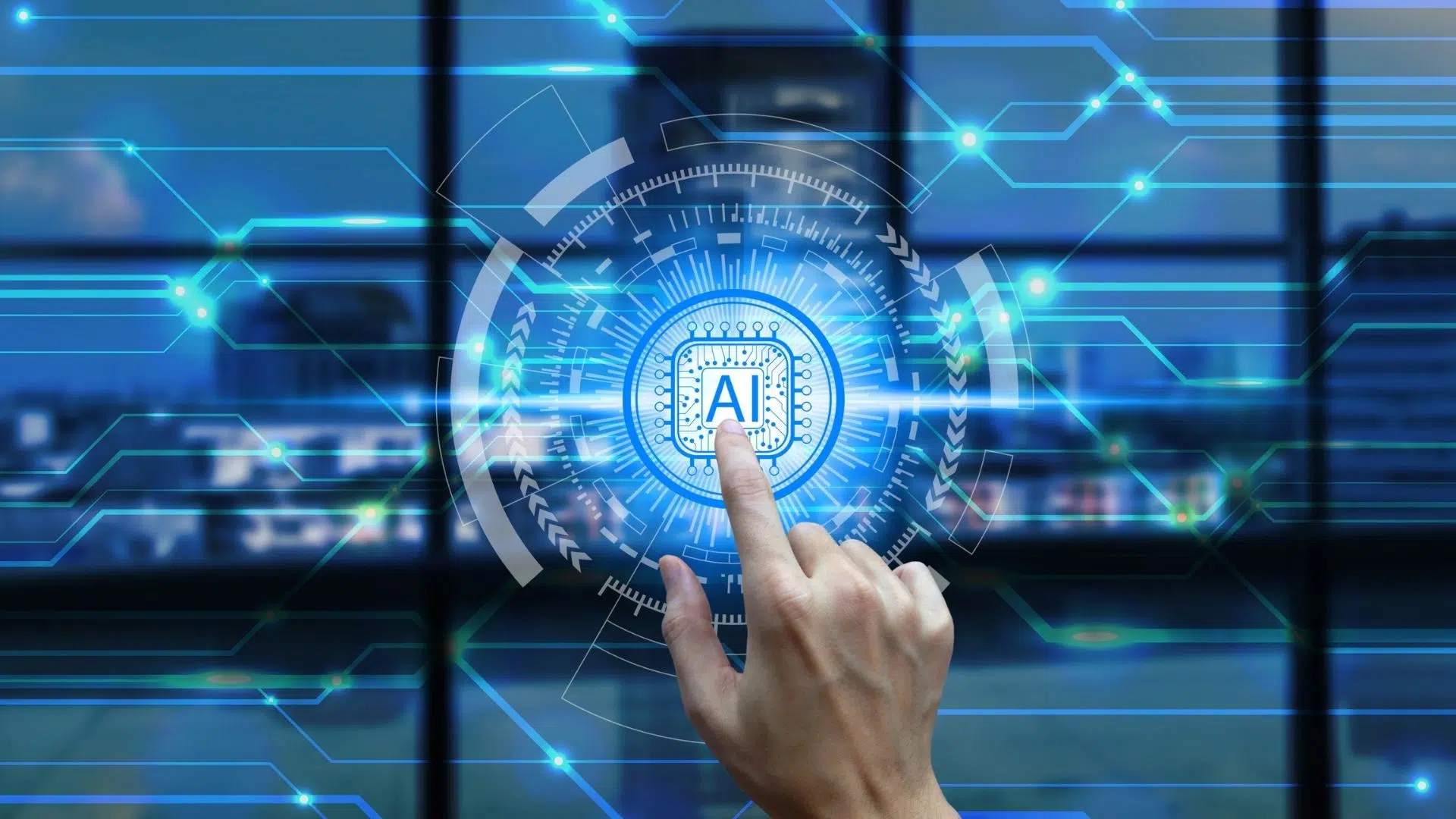AI Development Services via Staff Augmentation: Unlocking Innovation with Dedicated Engineers
Industry Trends & Innovation
Read Time: 15 mins

In today’s fast-paced digital economy, businesses across industries are increasingly adopting AI and machine learning to drive competitive advantage. From generative AI systems to predictive analytics, the demand for advanced AI solutions is surging. Yet many organizations lack the in-house AI developers, software engineers, or data scientists needed to build and scale such solutions. That’s where staff augmentation comes in, providing dedicated team members who integrate seamlessly with your own teams.
In this article, we’ll explore how ParallelStaff offers Artificial Intelligence development services and staff augmentation models to support your business operations, tailor custom AI solutions, and scale your AI initiatives with high quality and reliability.


 To get the most from staff augmentation with dedicated engineers, follow these best practices:
To get the most from staff augmentation with dedicated engineers, follow these best practices:

Why Businesses Choose AI Staff Augmentation
The Talent Gap in AI & Data Science
AI and data science are among the most in-demand specialties, yet many companies struggle to recruit or retain top-tier talent. Hiring full-time engineers, data engineers, AI experts, or data scientists is time-consuming, costly, and risky. Some projects require short- to medium-term bursts of work or specialized ML models, natural language processing modules, or computer vision systems, tasks that may not justify adding a permanent headcount. Staff augmentation with dedicated resources allows companies to:- Acquire deep domain expertise quickly
- Scale up or down as needs shift
- Avoid long recruiting cycles
- Reduce overheads associated with full-time hires
Focus on Core Priorities
When you delegate the burden of hiring and managing AI talent, your internal team can focus on your priority goals , whether that’s launching a new product, optimizing business processes, or enhancing customer experience. The augmented team handles technical tasks, while your leadership remains in control of direction, scope, and priorities.Faster Time-to-Market
Whether your use case involves generative AI, natural language processing, or predictive systems, speed matters. With a dedicated team already vetted and ready, projects can start immediately. This accelerates MVP launches, AI model training, iteration, and deployment across businesses business contexts.Cost Efficiency & Risk Mitigation
Compared to full-time employment, augmented staff often yield lower total costs , you pay for the work done without benefits, taxes, recruiting, or downtime. Also, if a project evolves or pivots, scaling down or swapping out resources is smoother.What AI Development Staff Augmentation Looks Like

Dedicated Engineers Embedded in Your Workflow
ParallelStaff’s approach involves assigning one or more engineers or AI experts who work exclusively (or semi-exclusively) with your internal team. These resources align with your company culture, tools, and processes. They may collaborate with your project managers, product teams, or R&D groups.Multidisciplinary Talent
AI work often spans multiple domains. You may need:- Data engineering for ingestion, ETL, and pipelines
- Data scientists to explore historical data, build ML models, or apply deep learning
- Software engineers to integrate models into software products
- Specialists in natural language processing or computer vision systems
- Experts in data security and compliance
Flexible Engagement Models
Different projects demand different durations. You might engage a dedicated team for a six-month AI initiative or scale a few AI developers for ongoing software development support. You retain control of scope but benefit from flexible scaling.Governance & Oversight
To ensure alignment to business goals and quality, ParallelStaff supports oversight through project managers, regular reviews, and ongoing support. That helps avoid drifting from the original use case or degrading performance.Key AI Capabilities You Can Build via Staff Augmentation
Here are some of the core AI / ML capabilities that augmented teams can deliver:Generative AI & AI Assistants
Generative AI powers systems that generate content, text, images, or even code. A dedicated team can build AI assistants, intelligent chatbots, or AI agents that interact with users via natural language processing. These can support customer service, internal knowledge bases, or creative workflows.Predictive Analytics & Forecasting
With predictive analytics, models learn from historical data and real-time data to forecast trends, demand, churn, or performance. Businesses can better plan inventory, staffing, or marketing campaigns. Augmented engineers can build and integrate predictive pipelines into your business operations.Custom AI Models & ML Solutions
Whether your problem is domain-specific (e.g., defect detection in manufacturing, risk scoring in finance) or niche (e.g., recommendation engines), augmented teams can develop AI models tailored to your specific needs. They may also fine-tune open-source frameworks, or design ML strategies to improve performance over time.Computer Vision & Image Analysis
In sectors like retail, health, security, or agriculture, computer vision systems can detect anomalies, classify objects, or interpret scenes. A staff-augmented team can deploy deep learning pipelines, preprocess image data, and embed inference into your software products.Natural Language Processing & Text Analytics
Many business tasks involve unstructured text: emails, reviews, support tickets. Using natural language processing, principles like sentiment analysis, topic modeling, summarization, or entity extraction can be orchestrated. Augmented professionals can build pipelines for customer support, automated ticket triage, or document insights.Robotic Process Automation (RPA) + AI
Combining Robotic Process Automation with AI enables automation of repetitive business processes. An augmented team can embed AI models into RPA bots to handle unstructured data, decision logic, or exceptions, improving operational efficiency.How ParallelStaff Delivers Staff-Augmented AI Development Services

Rigorous Talent Selection
ParallelStaff recruits top-tier AI developers, software engineers, data scientists, and domain specialists with proven experience in modern AI tools and advanced technologies. We vet candidates for performance, communication skills, and adaptability.Custom Team Matching
We don’t offer one-size-fits-all solutions. Instead, we match dedicated team members to your project based on your use case, technology stack, and team culture. Whether you need expertise in deep learning, reinforcement learning, or ML models, we supply a cohesive group.Onboarding & Integration
Your augmented engineers immerse in your workflows. They adopt your tools, code repositories, style guides, sprint ceremonies, and reporting frameworks. You remain the priority decision-maker. The ParallelStaff team transitions smoothly into your Scrum or Kanban teams.Project Governance & Oversight
We provide project managers or liaisons to coordinate tasks, monitor deliverables, and align performance with your business objectives. Regular checkpoints and status reviews maintain transparency and risk control.Quality Assurance & Testing
To ensure high-quality output, augmented teams employ best practices: unit tests, integration tests, model validation, performance metrics, and security audits. They refine AI models iteratively and guard against overfitting or bias.Data Security & Compliance
When dealing with sensitive data, data security is paramount. ParallelStaff ensures proper encryption, access control, and compliance protocols. Exhaustive audits, anonymization, and governance structures protect your data integrity.Ongoing Support & Maintenance
Even after deployment, AI systems require ongoing support: monitoring, model retraining, updates, and bug fixes. Augmented engineers remain available to maintain, scale, or pivot as new requirements emerge.Scalability & Flexibility
As your AI initiatives evolve, you can scale your dedicated team up or down. You may begin with one AI developer and expand to a full team for a larger phase. ParallelStaff accommodates the scaling dynamics.Use Cases & Case Studies
Here are a few AI use cases across diverse industries that demonstrate what a staff-augmented AI development engagement can deliver:Use Case: E-commerce Demand Forecasting
A retail client needed predictive analytics to forecast product demand across regions and manage stock. ParallelStaff provided data engineers and data scientists who built an ML pipeline working on historical data and real-time data, with models that adapt to seasonality, promotions, and trends. The result: a 15% reduction in overstock and stock-outs, improving margins and customer satisfaction.Use Case: Conversational AI for Customer Support
A SaaS company wanted to reduce burden on its support teams. Through generative AI and natural language processing, an augmented team built an intelligent chatbot and AI assistant that answers common queries, triages tickets, and learns from conversations. The system achieved 70% self-serve resolution, freeing human agents for more complex issues.Use Case: Predictive Maintenance in Manufacturing
A manufacturing firm engaged ParallelStaff to deploy AI models for machine failure prediction. Engineers aggregated sensor data and applied machine learning techniques and deep learning models. The system predicted potential breakdowns before failure, enabling preventive maintenance. Downtime dropped by 25%.Use Case: Document Analysis for Legal / Compliance
A legal firm faced a massive volume of contracts to analyze for risk. Augmented professionals built NLP pipelines for entity extraction, clause classification, and risk scoring. The ML models reduced manual review time by 60%.Use Case: Personalization & Recommendation Engines
A media business used AI development services to build a recommendation engine on content consumption data. The team built collaborative filtering and content-based models to surface personalized suggestions. Engagement and retention improved significantly, driving revenue growth. These are just a sampling; the software development capabilities of augmented AI engineers are applicable to nearly every domain.Best Practices for Successful AI Staff Augmentation
 To get the most from staff augmentation with dedicated engineers, follow these best practices:
To get the most from staff augmentation with dedicated engineers, follow these best practices:
Define Clear Use Cases & Objectives
Before you onboard engineers, specify your use case, success metrics, and business goals. Whether you’re building customer service bots, predictive analytics, or generative content, clarity helps align teams.Start Small, Then Scale
Begin with a pilot or MVP to validate assumptions. Engage a few AI developers or software engineers, test results, then expand to more ambitious phases. This mitigates risk and enables incremental learning.Maintain Strong Collaboration
Treat augmented staff as part of your in-house team. Encourage regular communication, pair programming, code reviews, and shared ownership. You’ll get better outcomes when they’re fully integrated rather than siloed.Provide Quality Data & Domain Knowledge
AI performance hinges on data. Ensure your internal domain experts share contextual knowledge, label data, and set expectations. Provide clean data, annotate, and help with data preparation. Augmented engineers will rely on this input heavily.Monitor, Evaluate & Iterate
Track model performance, fairness, drift, and KPIs regularly. Use feedback loops to refine custom AI solutions. Be ready to pivot. The augmented team should help with iteration and re-training.Coping with Model Drift & Maintenance
Over time, your deployed ML models may lose accuracy due to data shifts. Planning for ongoing support and periodic retraining is essential. The augmented team should help monitor and update models proactively.Plan a Smooth Transition (If Desired)
If you intend to later absorb the work in-house, plan for a smooth transition. The augmented engineers should document, train internal resources, and leave systems in a modular, maintainable state.Ensure Security & Compliance
AI projects touching personal or regulated data must enforce data security, audit trails, encryption, and compliance with standards like GDPR, HIPAA or industry-specific regulations. The augmented team should embed these as first-class.Overcoming Common Challenges in AI Augmented Projects

Misaligned Expectations
Sometimes stakeholders expect AI to be a silver bullet. If expectations are overblown, disappointment follows. Mitigate this by setting realistic goals, defining baseline metrics, and iterating in phases.Integration Complexity
Incorporating ML models into existing systems or workflows can be challenging. The augmented team must be proficient in integration, APIs, devops, and containerization (e.g. Docker, Kubernetes).Data Quality & Availability
Many projects falter for lack of clean, labeled, accessible data. Dealing with incomplete, inconsistent, or biased data requires experts in data engineering and data preparation.Model Interpretability & Trust
Some industries demand explainable AI. Engineers must be able to explain how predictions are made and enable auditability. Tools like SHAP, LIME, or interpretable models may be needed.Maintenance & Scalability
Deployed AI systems must scale gracefully, deal with new data loads, and require monitoring. Without ongoing support, performance can degrade, or the system may break under load.Budget & ROI
AI projects often suffer from budget overruns or unclear ROI. By structuring staff augmentation engagements with clear deliverables, timeboxes, and success metrics, you can manage costs and focus on business value. Throughout, you maintain priority on business goals, review progress, and keep control of strategy.Metrics & KPIs You Should Track
When deploying AI initiatives using augmented teams, these KPIs help gauge success:- Model accuracy, precision, recall, F1 score
- AUC / ROC metrics
- Latency and throughput (performance)
- Prediction drift over time
- Business metrics: conversion lift, revenue uplift, cost savings
- Time to value (how fast the MVP delivered)
- Customer satisfaction / net promoter score (if affecting customer interactions)
- Operational metrics, e.g. reduction in manual workload
- Uptime, error rates, system reliability
Common Scenarios & When to Consider Augmented AI Teams
You should consider staff augmentation with dedicated engineers when:- Your internal team lacks AI experience but needs to build advanced systems
- You have a project with a fixed or variable horizon
- You want to avoid the overhead of hiring permanent AI staff
- Your workload fluctuates (i.e. burst requirements)
- You want to pilot or test multiple AI use cases before committing fully
- You wish to scale up or down rapidly
- You need specialized skills like reinforcement learning, deep learning, or natural language processing
- Your business objectives demand rapid execution and agility
